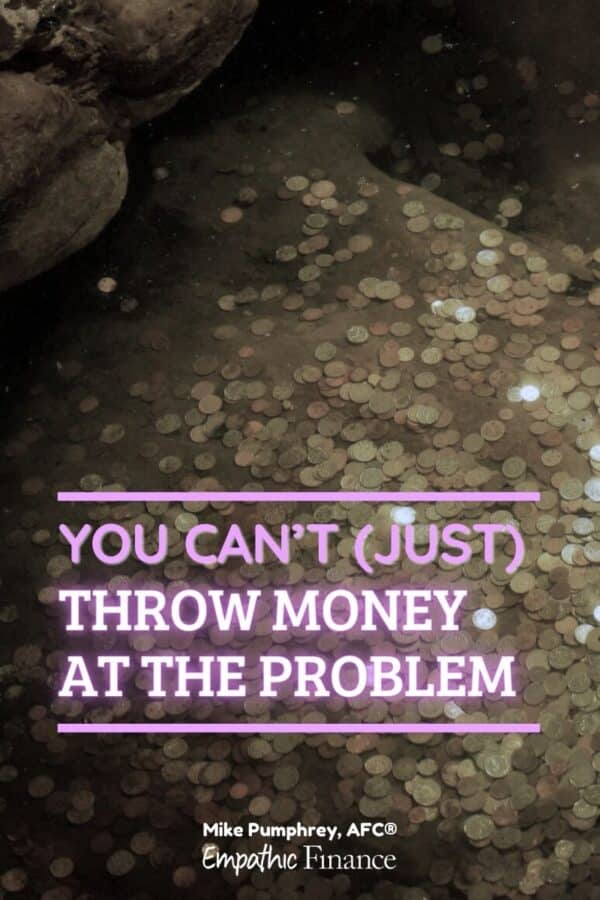The first step in any goal may be the hardest, but to just throw money at the problem without doing the work is not the first step at all.
I’ve been learning Python, the programming language, recently. It’s been a goal of mine to get more familiar with coding for a while now, so recently I buckled down and decided to finally do it instead of just thinking about it.
To this end, I bought one of the most highly-rated courses online on Udemy, called 100 Days of Code: The Complete Python Bootcamp.
The course promised me that I “will master the Python programming language by building 100 unique projects over 100 days.” I will also “learn automation, game, app and web development, data science and machine learning all using Python.”
I was sold on this, and put my money down. And then, the amazing thing was, nothing happened after that. I didn’t become a better coder.
It turned out that I had to actually go through the course. 😂
Obvious, you might think. And yet, have you ever thrown money at a problem, hoping that it would get solved on its own? I bet you have.
Table of Contents
What have you thrown money at?
There are any number of online courses, designed to help you achieve any aim imaginable, from getting a better paying job to a runway-ready skin care regimen.
And there are lots of practitioners that will be happy to take your money.
Think about it for a minute: have you ever just spent money on something and, somewhere in your head, you allowed yourself to feel better, knowing you had “taken a step forward”, even if you hadn’t actually done any work?
Where I’ve seen this most often is with therapy, specifically couple’s therapy. When couples have challenges and conflicts, and especially if they are feeling despondent about their relationship, they may enroll in therapy, just to “check a box”. “Well of course we’re working on things; we’re in therapy.”
But just by enrolling in a course or therapy or whatever, doesn’t mean anything if you’re not prepared to do any work beyond that.
Throwing money at the (money) problem
As a financial coach, I have seen this first hand. Money problems can be deeply uncomfortable for people to deal with, and I understand that.
(That is one of the reason why I create what I call the “Judgment-Free Zone” in my sessions with clients. I promise I will never chastise you for your decisions, past or present, because that serves neither one of our aims. I want you to feel safe in our sessions, as I know how vulnerable it is.)
What’s amazing, though, is that some people will sign up for my coaching sessions or my classes and then just not show up.
Almost every time I run my continuing education class for therapists, there will be one person who signs up and then no-shows. (You don’t get CE hours unless you show up!)
It’s not for lack of reaching out on my part either. It’s not some mistaken time zone situation. These people paid money and then ghosted, sometimes without ever reaching out.
This feels especially ironic that these are people are looking for help with money.
On one hand, this might seem good for me, as I’m basically being paid for doing nothing. But I get no solace or satisfaction from this, because I know out there is someone who wanted help (on some level) and yet was not able or willing to get it.
Take a small step today
Whatever it is that you’re looking to accomplish, but especially if this is the year that you’re finally ready to stop being anxious about money. I urge you to take one step beyond just spending money, on how you’re going to accomplish your goals.
What is this one step? It could be anything, really. You could schedule some time on your calendar to do a little bit of work, even if it’s only 20 minutes. You could open the next email or watch the next video in your course. You could make a phone call or write an email.
And if you’ve signed up for something, show up to it.
The first step is always the hardest, but just throwing money at the problem is not the first step at all. It’s necessary, but not sufficient.
So ask yourself, how are you really moving forward with your work?
If you’re wanting to build financial resilience, I would go here and schedule a free consultation with me.
But the next step is to actually show up. I’ll guide you from there.
Now if you’ll excuse me, I’m off to do some Python coding.




